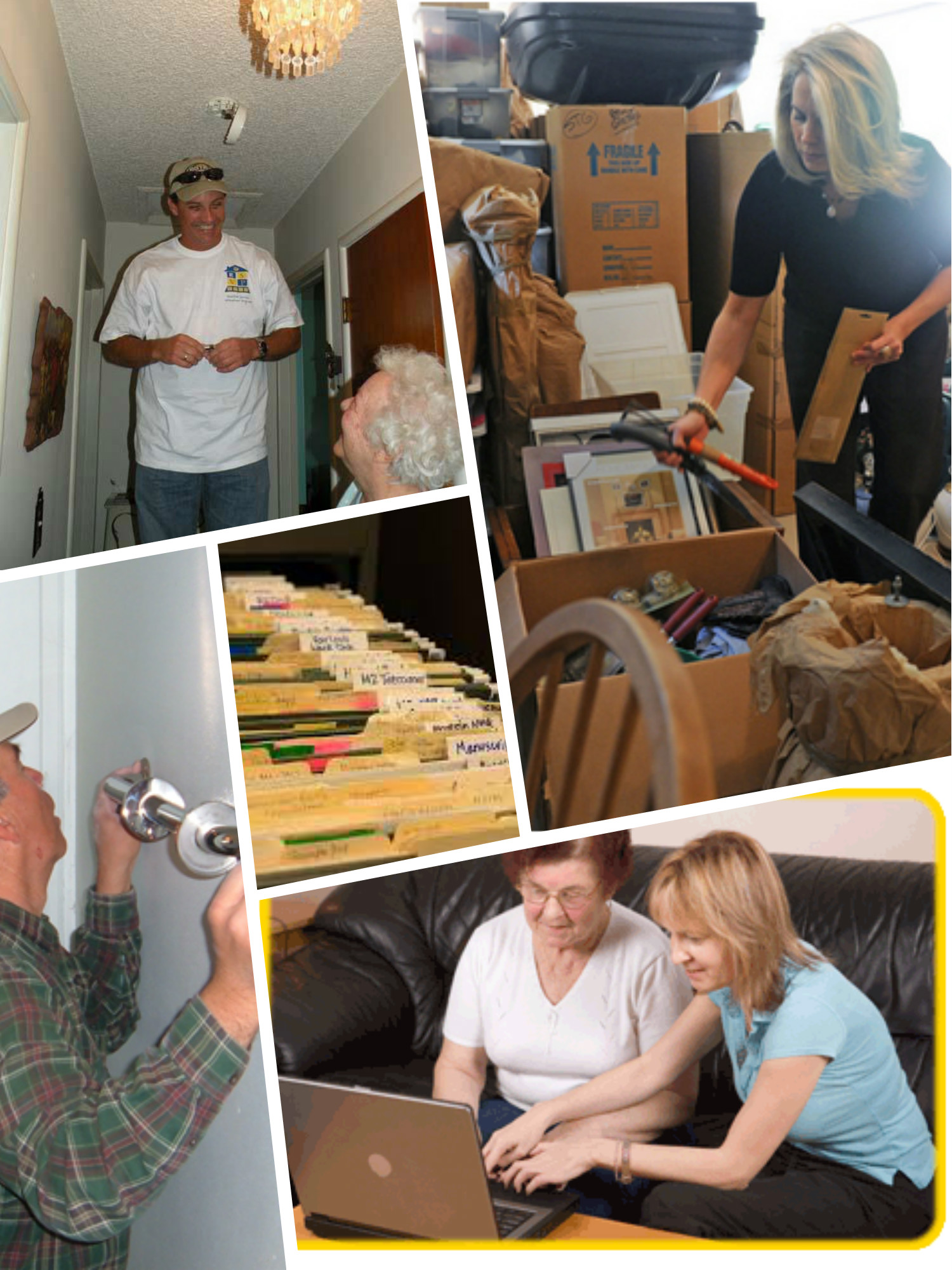It’s Time To Get Your Home Ready For Winter
Take advantage of the fall weather to get your home ready for winter. But don’t make it all work and no play…Take a day trip to see the beautiful fall foliage!
5 Simple Steps to Prepare Your Home for Winter
These quick fixes will help you heat your home more efficiently and save money.
By Trent Hamm | Contributor U.S. News and World Report
Fall is here. Days are shortening, and temperatures are dropping. Before long, many people will be firing up their furnaces for the first time in months and preparing for the winter ahead.
Winter preparations for both apartment dwellers and homeowners are as simple or as involved as you want to make them. Almost every strategy is designed to save money by taking advantage of advance knowledge of the temperature change. Some strategies take more time and others save more money
Here are five changes that are simple to execute and can save money during the winter months.
1. Replace the weather stripping around your doors. If you can run your hand around the edges of an outside-facing door on a cold day and feel the flow of cool air, you have an airflow problem, one that’s going to cost you a lot of money over the course of the winter. Even if you heat the air inside of your home, that warm air is going to flow outside around the edges of your doors and be replaced by cool outdoor air, which you’ll have to heat. The costs add up.
The solution is to install weather strips around the edges of your external doors. Most hardware stores sell kits, making the actual installation into a simple task. Generally, you just close the door, hold the strips in place and attach them, either by pounding in nails, or through some other simple method of attachment. Doing so will keep a lot of warm air from leaving your home this winter, cutting your energy bill dramatically.
2. Clean your air vents and baseboard heaters. Depending on the type of heating you have in your home, you likely either have air vents or baseboard heaters all over the place. In both cases, a careful cleaning before they’re in heavy winter use can save you surprising amounts of money.
Just wipe down and remove as much dust as possible from baseboard heaters, particularly from the inside, and they’ll run much more efficiently. Most baseboard heaters have a removable front, so take that off and gently but thoroughly clean the inside. If you have air vents, remove the grates and remove all dust and debris that you find within reach, as all of that stuff slows down airflow.
3. Reverse the direction of your ceiling fans. You want to be pushing ot air downward, so make sure your ceiling fans are pushing air down on you when you’re standing underneath them.
On most ceiling fans, there’s a switch that will reverse the direction of the blades, so just flip that switch. Then, when you run the ceiling fan, the warm air is pressed down from the ceiling, keeping the warmer air inside for longer and reducing the burden on your furnace or baseboard heater.
4. “Seal” any unused rooms. If you have any rooms that are unused or irregularly used in your home, seal them off, so that you’re not paying to heat them during the winter. Simply turn off any baseboard heaters, close any vents and put a blanket or towel along the bottom of the door to minimize airflow. You can obviously undo these steps if you ever need to use the room for anything during the winter.
If that unused room becomes cold, that’s a good thing. The cooler the unused room is, the less money you’ve spent on heating that room. That savings can add up quite nicely over the length of a winter.
5. Install a programmable thermostat – or reprogram one if you already have one. Ideally,during the winter months, you’ll lower the temperature of your home while no one is there or while you’re sleeping. For example, you might want the temperature of your home to drop from 8 a.m. to 3 p.m. each weekday when people are at work or school. You also might want it to drop from 11 p.m. to 5 a.m. each night when people are sleeping. That way, you’re not paying for your furnace to run while people aren’t home or are sleeping, thus cutting back on your energy bill.
While you can just remember to adjust the thermostat several times a day, a programmable thermostat will handle those adjustments automatically for you. Just program it to have no furnace running at all during those hours, or just enough to keep the temperature at, say, 55 degrees Fahrenheit. That way, your furnace will run much less than before during those time periods, cutting your heating bill by a surprising amount.
Almost anyone can tackle these five simple steps. And each process is almost guaranteed to lower your home energy costs this winter. Good luck.
Replace ‘Aging in Place’ With This Term
DAILY REAL ESTATE NEWS | TUESDAY, OCTOBER 18, 2016
Seventy-five percent of boomers recently surveyed say they aren’t ready to age in their homes and adopt age-in-place home features, according to Home Advisors’ 2016 Aging in Place Report. Older Americans are “unwilling to prematurely surrender their homes and lives to old age just because they’ve reached retirement age,” the report notes.
The report highlights the need to reposition “aging in place” renovations to “thriving in place.” After all, many of the renovations for aging in place could be a selling point to younger age groups too, the report notes.
Sixty-one percent of home owners over the age of 55 surveyed say they plan to stay in their homes indefinitely. Yet, three-quarters of home owners have never completed any aging-related renovation, and 31 percent say they’ve never even considered one.
“There are several economic reasons for home owners to start on ‘thriving in place’ projects sooner rather than later,” says Brad Hunter, HomeAdvisor’s chief economist. “If home owners start early, they can spend sufficient time researching and planning to avoid wasted time and suboptimal solutions. And, home owners can protect, and possibly even raise resale value of the home by making the home more appealing to buyers in all age groups with modifications that have a broad appeal.”
For example, a kitchen remodel may include base drawers instead of lower cabinets, and a bathroom may include bench seating inside the shower too. More “thriving in place” features may include wider doorways, open floor plans, zero-step entrances, remote-controlled window coverings, and motion sensor lights.
“Aging in place isn’t about special add-on features that will only help you once you’ve fallen and incurred a disability,” says Rodney Harrell, director of Livable Communities at AARP’s Public Policy Institute. “It’s about making functional home improvements that make spaces more useful and more usable for anyone, anytime.”
The report highlights the growing need to have “thriving in place” discussions. The population of Americans age 50 and older is expected to rise by another 10 million by 2020, according to AARP. By 2060, the number of Americans age 85 and older is expected to more than triple. It’s the fastest-growing aging group nationwide.
“‘Aging in place’ is a misnomer,” according to the report. “Whether we’re 25, 45, 65, or 85, our homes aren’t for aging. They’re for thriving. From pancake breakfasts with our kids and Sunday brunches with our friends to holidays with family, movie nights with our spouses and curling up with a good book, our homes are where we do the things we love to do, with the people we love to do them with,” according to the report. “Looking at aging in place through a new lens acknowledges how we live – not just how long we live – will usher in a new generation of home-improvement projects that benefit the young, the young at heart, and everyone in between.”
Source: “Aging in Place Report 2016,” Home Advisor (2016)
Fun Housing Facts
- Most homeowners tend to stay in their homes for about six years.
- The average bathroom remodel costs $10,500. They also have the highest return on investment- about 102%.The average kitchen remodel costs nearly $4,400 and can bring a return of about 90%.
- Brass doorknobs disinfect themselves. The ions in the metal have a toxic effect on spores, fungi, viruses, and other germs, eliminating the infections within eight hours.
- The people of Easter Island have a word, “tingo,” which literally means to take objects one desires from the house of a friend by gradually borrowing all of them until there’s nothing left.
Kissinger Realty Group, Inc., 1120 E High St., Pottstown, PA 19464
Phone : 610-327-4626 Email: kkissinger247@gmail.com
Also find us on Facebook |












